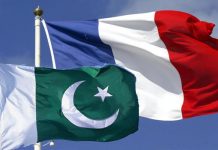Writing for Dawn, author Jawaid Bokhari discusses the current economic and political situation in Pakistan, highlighting the divergent views about the country’s future outlook and possible solutions to the ongoing crises.
The author notes that despite the imponderable uncertainties that continue to plague the nation, the search for remedies has intensified, generating a debate that is rooted in ground realities.
The solutions offered, according to the author, range from short- to medium- to long-term durations and are not always immune from conflicting interests. However, the debate is also generating some creative ideas that can bring about a culture change in the country’s mode of governance, public service delivery, and better utilization of natural and abundant human resources for socio-economic development.
The author then takes an optimistic view that the situation may improve incrementally here and there with no fundamental or meaningful changes, at least in the short to medium-term. However, the author points out that the next polls may not bring political stability due to persisting stagflation and the absence of national consensus on charters of economy and governance.
The author cites some data to support this view, noting that after-tax earnings of the corporate sector recorded at Rs 877.6 billion in the first nine months of the current fiscal year, up 8.8% from a year ago. The data is based on the results of 89 of the top 100-listed companies, representing 93.1% of the stock market’s capitalization. Furthermore, direct tax collection shot up by 44% to Rs2.5 trillion during ten months of FY23, as compared to the same period of the last fiscal year. Bankers and currency dealers also expect remittances for April at $2.5bn to help post a current account surplus for the second month in a row.
However, the author notes that there are still some challenges that the country must overcome, such as the high public debt risks, precarious foreign exchange reserves position, and curbs on dollar movements, which have led to a decline in foreign companies’ outflow of profits and dividends.
In addition, the author discusses some of the political and economic issues that are hindering the country’s progress. For instance, bank credit to the private sector has dropped significantly, while bank financing to state-owned enterprises has ballooned, making privatization more difficult. The author also highlights the fact that Pakistan’s state-owned enterprises are the worst in South Asia, and their losses are growing faster than their assets.
Finally, the author emphasizes the importance of common values and aspirations in building trust, cooperation, and social cohesion, which are critical factors for the country’s economic and social development. However, power politics remain a major hurdle in achieving these goals, according to the author. Overall, the passage presents a nuanced and detailed analysis of Pakistan’s current situation, highlighting the challenges and opportunities that lie ahead.
To read the full article visit www.dawn.com
























Super site! I am Loving it!! Will return once more, Im taking your food likewise, Thanks.